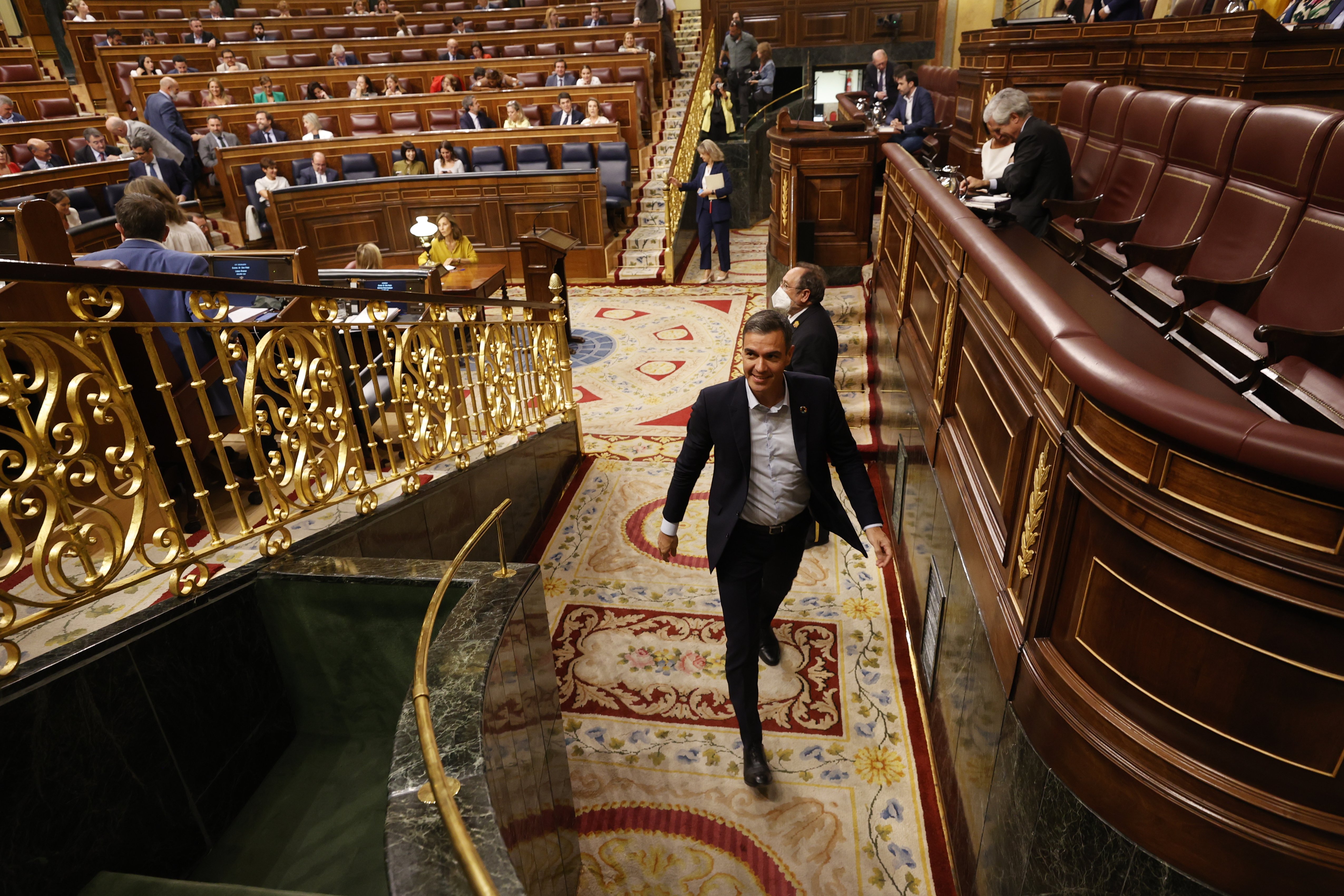"Ceuta and Melilla are Spain, full stop." The Spanish prime minister, Pedro Sánchez, has given this blunt response to the Moroccan government this Thursday, which in a letter to the UN stated that "Melilla is a prison occupied by Spain" and that "the kingdom of Morocco does not have any land borders with Spain". Thus, Sánchez defended that the two Spanish autonomous cities located on the North African coast, Ceuta and Melilla, are an unquestionable part of Spanish territory, in a speech in the Congress of Deputies, after a question from the spokesperson for the opposition People's Party, Cuca Gamarra, on the issue.
The head of the Spanish executive made it clear that "Ceuta and Melilla are Spain", after being prompted to respond by Gamarra, who at the beginning of her intervention asked him to "defend the national sovereignty and territorial integrity of Spain". The spokesperson for the PP, outraged by Rabat's claims, appealed to the Socialist politician "as prime minister" and being a parliamentarian, to not leave the house before affirming that the words of the Moroccan government were "completely false".
Morocco rejects the existence of a border in Melilla
Earlier, the Moroccan government had denied the existence of land borders between Morocco and Spain. It did so in a letter addressed to the UN Human Rights Council in response to the explanations that several UN rapporteurs demanded in July to clarify the events that happened in Melilla on June 24th, when dozens of migrants died in an attempt to cross the border fence into European Union territory. Thus, the Moroccan government rejected the idea of a Spanish-Moroccan border at the enclave cities of Ceuta and Melilla and instead referred to the dividing line between both countries as "a simple crossing point".
In a drastic foreign policy turnaround last April, Spanish PM Pedro Sánchez opened a new era in its always-difficult relations with the kingdom ruled by Mohamed VI, after the Spanish government changed its position in relation to the conflict its former colony of Western Sahara. Spain abandoned its historical support for the UN position that asserted Sahara's right to self-determination, to lend its support to the Moroccan plan for Saharan autonomy under the sovereign rule of Rabat. Morocco has occupied most of Western Sahara since the 1970s. As reported by the Spanish government at the time of the new deal in April, the defrosting of the relationship would serve to "guarantee the stability, sovereignty, territorial integrity and prosperity" of both countries. Also, the relationship was to be based on "permanent communication, transparency, mutual respect and signed agreements". However, Morocco's latest claims cast doubt on the good understanding between the two countries.
In addition, Morocco has denied responsibility for the events that occurred at the Melilla fence in the letter sent to the UN, attributing the tragedy to a "lax" attitude by Algeria when it allowed passage of immigrants into Moroccan territory. It also held the Spanish authorities responsible for so-called "hot returns" of migrants.

